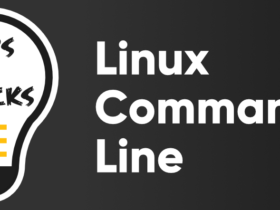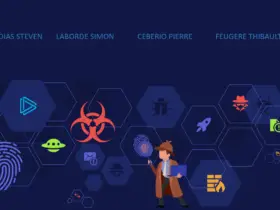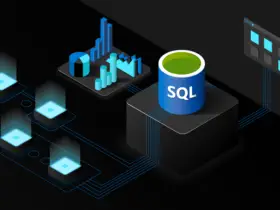
Nuclie – Massive Vulnerability Scanner

Nuclei is a fast tool for configurable targeted scanning based on templates offering massive extensibility and ease of use.
Nuclei is used to send requests across targets based on a template leading to zero false positives and providing effective scanning for known paths. Main use cases for nuclei are during initial reconnaissance phase to quickly check for low hanging fruits or CVEs across targets that are known and easily detectable. It uses retryablehttp-go library designed to handle various errors and retries in case of blocking by WAFs, this is also one of our core modules from custom-queries.
We have also open-sourced a template repository to maintain various type of templates, we hope that you will contribute there too. Templates are provided in hopes that these will be useful and will allow everyone to build their own templates for the scanner. Checkout the templating guide at nuclei.projectdiscovery.io for a primer on nuclei templates.
Resources
- Features
- Installation Instructions
- Nuclei templates
- Usage
- Running nuclei
- Rate Limits
- Template exclusion
- Thanks
Features
- Simple and modular code base making it easy to contribute.
- Fast And fully configurable using a template based engine.
- Handles edge cases doing retries, backoffs etc for handling WAFs.
- Smart matching functionality for zero false positive scanning.
Usage
nuclei -h
This will display help for the tool. Here are all the switches it supports.
| Flag | Description | Example |
|---|---|---|
| bulk-size | Max hosts analyzed in parallel per template ( default 25) | nuclei -bulk-size 25 |
| burp-collaborator-biid | Burp Collaborator BIID | nuclei -burp-collaborator-biid XXXX |
| c | Max templates processed in parallel (default 10) | nuclei -c 10 |
| l | List of urls to run templates | nuclei -l urls.txt |
| target | Target to scan using Templates | nuclei -target hxxps://example.com |
| t | Templates input file/files to check across hosts | nuclei -t git-core.yaml -t cves/ |
| no-color | Don’t Use colors in output | nuclei -no-color |
| no-meta | Don’t display metadata for the matches | nuclei -no-meta |
| json | Prints and write output in json format | nuclei -json |
| include-rr | Inlcude req/resp of matched output in JSON output | nuclei -json -include-rr |
| o | File to save output result (optional) | nuclei -o output.txt |
| project | Project flag to avoid sending same requests | nuclei -project |
| project-path | Use a user defined project folder | nuclei -project -project-path test |
| stats | Enable the progress bar (optional) | nuclei -stats |
| silent | Show only found results in output | nuclei -silent |
| retries | Number of times to retry a failed request | nuclei -retries 1 |
| timeout | Seconds to wait before timeout (default 5) | nuclei -timeout 5 |
| trace-log | File to write sent requests trace log | nuclei -trace-log logs |
| rate-limit | Maximum requests/second (default 150) | nuclei -rate-limit 150 |
| severity | Run templates based on severity | nuclei -severity critical,high |
| stop-at-first-match | Stop processing http requests at first match | nuclei -stop-at-first-match |
| exclude | Template input dir/file/files to exclude | nuclei -exclude panels -exclude tokens |
| debug | Allow debugging of request/responses. | nuclei -debug |
| update-templates | Download and updates nuclei templates | nuclei -update-templates |
| update-directory | Directory for storing nuclei-templates(optional) | nuclei -update-directory templates |
| tl | List available templates | nuclei -tl |
| templates-version | Shows the installed nuclei-templates version | nuclei -templates-version |
| v | Shows verbose output of all sent requests | nuclei -v |
| version | Show version of nuclei | nuclei -version |
| proxy-url | Proxy URL | nuclei -proxy-url hxxp://127.0.0.1:8080 |
| proxy-socks-url | Socks proxyURL | nuclei -proxy-socks-url socks5://127.0.0.1:8080 |
| random-agent | Use random User-Agents | nuclei -random-agent |
| H | Custom Header | nuclei -H “x-bug-bounty: hacker” |
Installation Instructions
From Binary
The installation is easy. You can download the pre-built binaries for your platform from the Releases page. Extract them using tar, move it to your $PATHand you’re ready to go.
Download latest binary from https://github.com/projectdiscovery/nuclei/releases tar -xzvf nuclei-linux-amd64.tar.gz mv nuclei /usr/local/bin/ nuclei -version
From Source
nuclei requires go1.14+ to install successfully. Run the following command to get the repo –
GO111MODULE=on go get -u -v github.com/projectdiscovery/nuclei/v2/cmd/nuclei
From Github
git clone https://github.com/projectdiscovery/nuclei.git; cd nuclei/v2/cmd/nuclei/; go build; mv nuclei /usr/local/bin/; nuclei -version
Nuclei templates
You can download or update the nuclei templates using update-templates flag.
nuclei -update-templates
or download it from nuclei templates Github project.
git clone https://github.com/projectdiscovery/nuclei-templates.git
Please refer to nuclei templating guide to writing your own custom templates.
Running Nuclei
Running with single template.
This will run git-core.yaml template against all the hosts in urls.txt and returns the matched results.
nuclei -l urls.txt -t files/git-core.yaml -o results.txt
You can also pass the list of urls at standard input (STDIN). This allows for easy integration in automation pipelines.
cat urls.txt | nuclei -t files/git-core.yaml -o results.txt
![]() Nuclei accepts list of URLs as input, for example here is how
Nuclei accepts list of URLs as input, for example here is how urls.txt looks like:-
https://test.some-site.com
http://vuls-testing.com
https://test.comRunning with multiple templates.
This will run the tool against all the urls in urls.txt with all the templates in the cves and files directory and returns the matched results.
nuclei -l urls.txt -t cves/ -t files/ -o results.txt
Running with subfinder.
subfinder -d hackerone.com -silent | httpx -silent | nuclei -t cves/ -o results.txt
Running in Docker container
You can use the nuclei dockerhub image. Simply run –
docker pull projectdiscovery/nuclei
After downloading or building the container, run the following:
docker run -it projectdiscovery/nuclei
For example, this will run the tool against all the hosts in urls.txt and output the results to your host file system:
cat urls.txt | docker run -v /path/to/nuclei-templates:/app/nuclei-templates -v /path/to/nuclei/config:/app/.nuclei-config.json -i projectdiscovery/nuclei -t /app/nuclei-templates/files/git-config.yaml > results.txt
Remember to change /path-to-nuclei-templates to the real path on your host file system.
Rate Limits
Nuclei have multiple rate limit controls for multiple factors including a number of templates to execute in parallel, a number of hosts to be scanned in parallel for each template, and the global number of request / per second you wanted to make/limit using nuclei, as an example here is how all this can be controlled using flags.
-cflag => Limits the number of templates processed in parallel.-bulk-sizeflag => Limits the number of hosts processed in parallel for each template.-rate-limitflag => Global rate limiter that ensures defined number of requests/second across all templates.
If you wanted go fast or control the scans, feel free to play with these flags and numbers, rate-limit always ensure to control the outgoing requests regardless the other flag you are using.
Template Exclusion
Nuclei-templates includes multiple checks including many that are useful for attack surface mapping and not necessarily a security issue, in cases where you only looking to scan few specific templates or directory, here are few options / flags to filter or exclude them from running.
Running templates with exclusion
We do not suggest running all the nuclei-templates directory at once, in case of doing so, one can make use of exclude flag to exclude specific directory or templates to ignore from scanning.
nuclei -l urls.txt -t nuclei-templates -exclude panels/ -exclude technologies -exclude files/wp-xmlrpc.yaml
Note:- both directory and specific templates case be excluded from scan as shared in the above example.
Running templates based on severity
You can run the templates based on the specific severity of the template, single and multiple severity can be used for scan.
nuclei -l urls.txt -t cves/ -severity critical,medium
The above example will run all the templates under cves directory with critical and medium severity.
nuclei -l urls.txt -t panels/ -t technologies -severity info
The above example will run all the templates under panels and technologies directory with severity marked as info
Using .nuclei-ignore file for template exclusion
Since release of nuclei v2.1.1, we have added support of .nuclei-ignore file that works along with update-templates flag of nuclei, in .nuclei-ignore file, you can define all the template directory or template path that you wanted to exclude from all the nuclei scans, to start using this feature, make sure you installed nuclei templates using nuclei -update-templates flag, now you can add/update/remove templates in the file that you wanted to exclude from running.
nano ~/nuclei-templates/.nuclei-ignoreDefault nuclei-ignore list can be accessed from here, in case you don’t want to exclude anything, simply remove the .nuclei-ignore file.
 Notes
Notes
- Progress bar is experimental feature, might not work in few cases.
- Progress bar doesn’t work with workflows, numbers are not accurate due to conditional execution.
Demo

Thanks
nuclei is made with ![]() by the projectdiscovery team. Community contributions have made the project what it is. See the Thanks.md file for more details.
by the projectdiscovery team. Community contributions have made the project what it is. See the Thanks.md file for more details.
Do also check out these similar awesome projects that may fit in your workflow:
Burp Suite, FFuF, Jaeles, Qsfuzz, Inception, Snallygaster, Gofingerprint, Sn1per, Google tsunami, ChopChop

























Leave a Reply